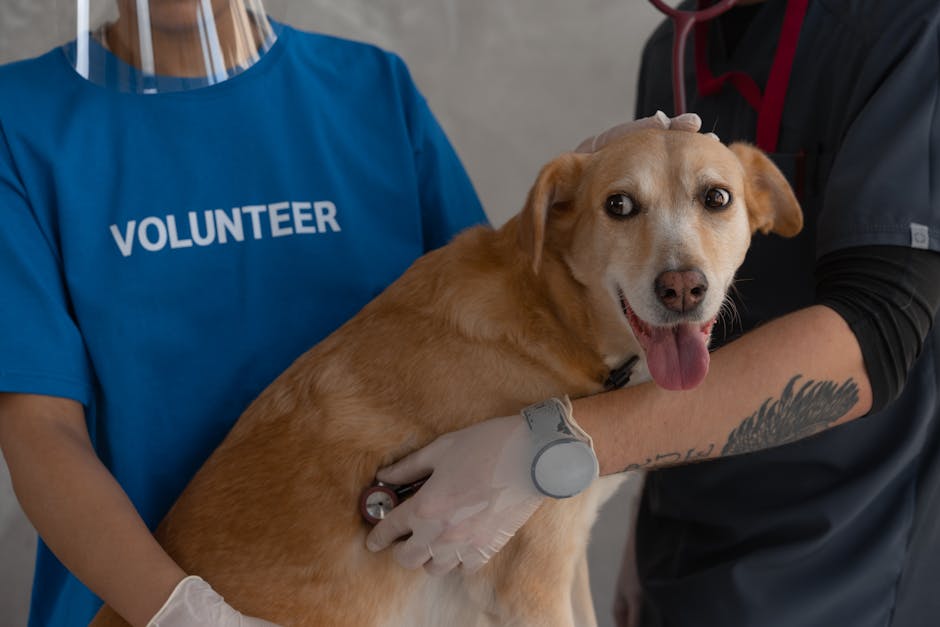Pet ownership is a rewarding experience, filled with unconditional love and companionship. However, it’s crucial to understand that certain breeds of dogs and cats are genetically predisposed to specific health problems. This knowledge empowers responsible pet owners to make informed decisions about their choices, potentially preventing or managing potential ailments.
Breed-specific health issues can encompass a wide spectrum of concerns, from relatively minor inconveniences to life-altering conditions requiring extensive veterinary care. Recognizing these predispositions allows owners to proactively manage health risks, providing their pets with the best possible quality of life.
A Critical Look at Canine Health Predispositions
Canine companions, in their diverse array of breeds, display a range of susceptibility to specific health challenges. A detailed exploration reveals several prominent examples.
Large Breed Canines: A Vulnerability to Joint Issues
Large-breed dogs are frequently confronted with skeletal problems. Conditions like hip dysplasia and elbow dysplasia, impacting the joints, are prevalent in breeds like German Shepherds, Great Danes, and Saint Bernards. These conditions often manifest in early adulthood, causing pain, lameness, and reduced mobility. Early detection and management through joint supplements, controlled exercise, and possibly surgery, are essential for maintaining a high quality of life.
Small Breed Canines: Challenges Associated with Miniature Statures
Smaller breeds, while endearing, might face distinct problems. Conditions like brachycephalic airway syndrome, affecting dogs with flattened faces, are unfortunately commonplace in breeds like Bulldogs and Pugs. This syndrome compromises their ability to breathe easily, requiring specialized care to alleviate breathing difficulties. Additionally, smaller breeds are also susceptible to certain types of cancers and conditions requiring specialized nutritional care.
Specific Breed Predispositions: Beyond the Generalized Trends
Beyond the broad categories, several breeds exhibit unique vulnerabilities. For instance, Cavalier King Charles Spaniels are often prone to mitral valve disease, impacting the heart, while Boxers are known for their predisposition to mast cell tumours. These particular examples underscore the importance of breed-specific research and understanding.
Addressing Breed-Specific Health Concerns in Cats
Felines, too, present variations in susceptibility to health issues. While not as comprehensively documented as in dogs, specific breeds display tendencies toward particular diseases.
Persian Cats: Respiratory and Skin Concerns
Persian cats, with their luxurious coats and captivating personalities, can be prone to respiratory issues due to their flattened faces. Similarly, their dense coat can make them susceptible to skin conditions and allergies. Appropriate grooming and environmental control are crucial for managing these potential issues.
Maine Coon Cats: A Predisposition to Arthritis
Maine Coons, renowned for their large size and gentle nature, can be prone to joint issues such as arthritis as they age. Maintaining a healthy weight, appropriate exercise, and potentially dietary supplements, can lessen the impact of these conditions.
A Proactive Approach to Pet Health
A responsible pet owner goes beyond merely choosing a cute or exotic breed. A thorough understanding of a breed’s potential health issues empowers proactive steps towards good health and well-being.
Breeding Practices and Genetic Screening
It’s essential to acknowledge that responsible breeders strive to minimize the transmission of genetic health problems. Advanced genetic screening and breeding programs play a pivotal role in reducing the occurrence of inheritable diseases. Responsible breeders prioritize the health and longevity of their breeding stock.
Early Detection and Veterinary Care
Early detection is vital in managing potential health issues. Regular veterinary checkups are critical. These checkups, coupled with a comprehensive understanding of a breed’s predisposition, allow veterinarians to identify and address issues early, often preventing serious complications.
Nutrition and Lifestyle Choices
Diet and lifestyle significantly influence a pet’s overall health. A well-balanced diet tailored to the breed’s needs, appropriate exercise routines, and maintaining a healthy weight play vital roles in preventing or mitigating breed-specific health concerns. For instance, appropriate food formulation can be beneficial in managing joint health in large breeds, while specialized diets cater to specific health needs of various breeds.
Conclusion: Informed Choices, Happy Pets
Ultimately, a commitment to responsible pet ownership includes careful consideration of a breed’s potential health predispositions. By understanding these potential issues, owners can proactively manage risks, ensuring a long, healthy, and happy life for their beloved companions. It’s a conscious choice rooted in love and a dedication to providing the best possible care for each unique pet. A comprehensive approach, emphasizing both breed-specific awareness and proactive health management, maximizes the likelihood of a fulfilling and rewarding relationship with a pet for years to come.
